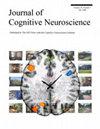Make or Break: The Influence of Expected Challenges and Rewards on the Motivation and Experience Associated with Cognitive Effort Exertion
IF 3.1
3区 医学
Q2 NEUROSCIENCES
引用次数: 0
Abstract
Challenging goals can induce harder work but also greater stress, in turn potentially undermining goal achievement. We sought to examine how mental effort and subjective experiences thereof interact as a function of the challenge level and the size of the incentives at stake. Participants performed a task that rewarded individual units of effort investment (correctly performed Stroop trials) but only if they met a threshold number of correct trials within a fixed time interval (challenge level). We varied this challenge level (Study 1, n = 40) and the rewards at stake (Study 2, n = 79) and measured variability in task performance and self-reported affect across task intervals. Greater challenge and higher rewards facilitated greater effort investment but also induced greater stress, whereas higher rewards (and lower challenge) simultaneously induced greater positive affect. Within intervals, we observed an initial speed up then slowdown in performance, which could reflect dynamic reconfiguration of control. Collectively, these findings further our understanding of the influence of task demands and incentives on mental effort exertion and well-being.成败:预期挑战和奖励对与认知努力相关的动机和体验的影响
具有挑战性的目标会让人更加努力地工作,但同时也会带来更大的压力,进而有可能影响目标的实现。我们试图研究脑力劳动和主观体验在挑战程度和激励大小的作用下是如何相互作用的。参与者在完成一项任务时,只有在固定的时间间隔(挑战水平)内达到一定数量的正确试验,才会获得单个努力投资单位(正确完成 Stroop 试验)的奖励。我们改变了挑战水平(研究 1,n = 40)和风险奖励(研究 2,n = 79),并测量了不同任务时间间隔内任务表现和自我报告情感的变化。更大的挑战和更高的奖励促进了更大的努力投入,但同时也引起了更大的压力,而更高的奖励(和更低的挑战)同时引起了更大的积极情绪。在时间间隔内,我们观察到表现先加快后减慢,这可能反映了控制的动态重新配置。总之,这些发现进一步加深了我们对任务要求和奖励对脑力消耗和幸福感的影响的理解。
本文章由计算机程序翻译,如有差异,请以英文原文为准。
求助全文
约1分钟内获得全文
求助全文
来源期刊
CiteScore
5.30
自引率
3.10%
发文量
151
审稿时长
3-8 weeks
期刊介绍:
Journal of Cognitive Neuroscience investigates brain–behavior interaction and promotes lively interchange among the mind sciences.

 求助内容:
求助内容: 应助结果提醒方式:
应助结果提醒方式:


